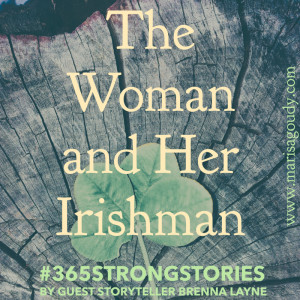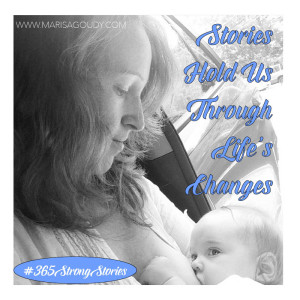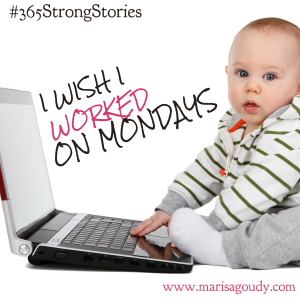
BLOG
The Woman and Her Irishman by Guest Storyteller Brenna Layne
 Over a century ago, the orphanage burned to the ground, and a chapter of my family's history went up in smoke. With the papers charred to ash, all anyone knew about Timothy Sullivan was what they could remember—that he had been allowed to keep his birth-father's name (an unusual practice at the time) and that he'd been left at the orphanage by a woman with long black hair.
Every year when St. Patrick's Day rolls around, my family retells the stories of our ancestors. Timothy's begins in fire and mystery, but it's the woman I wonder about. The suggestion in the story has always been that she wasn't Caucasian, that some Irish immigrant had taken a Native wife or lover.
Over a century ago, the orphanage burned to the ground, and a chapter of my family's history went up in smoke. With the papers charred to ash, all anyone knew about Timothy Sullivan was what they could remember—that he had been allowed to keep his birth-father's name (an unusual practice at the time) and that he'd been left at the orphanage by a woman with long black hair.
Every year when St. Patrick's Day rolls around, my family retells the stories of our ancestors. Timothy's begins in fire and mystery, but it's the woman I wonder about. The suggestion in the story has always been that she wasn't Caucasian, that some Irish immigrant had taken a Native wife or lover.
Last week, the internet exploded over the release of J. K. Rowling's new series of stories set in North America and heavily featuring Native American mythology viewed through a European lens. Many First Nations people decry Rowling's cultural appropriation, while Harry Potter fans spring to her defense.
I don't know what to think. I've been reading articles about cultural appropriation and trying to understand. There is so much rhetoric on all sides. What I do understand is that stories have power. They tell us who we are, shape the way we locate ourselves in this world, pit us against each other. They bring out the best and the worst in us.
So what does it mean that part of my story is missing? Sometimes I try to imagine all the nameless women who came before me, their faces and loves and lives lost to history. My head spins, and the hugeness of not-knowing threatens to overwhelm me. How do I understand myself if I don't know where I come from?
Stories are tricky, and trickiest of all is that there comes a time when we must begin to write them for ourselves. So I pick up the threads, the floating flakes of ash borne on a century-old updraft, and set out into the wide world to discover who I am.
 Brenna Layne is a writer and mother in the Shenandoah Valley of Virginia, where she chases words, kids, critters, and sunsets.
Brenna Layne is a writer and mother in the Shenandoah Valley of Virginia, where she chases words, kids, critters, and sunsets.
"I ask my Confidence for help”
 On the way home from Girl Scouts last night my first grader and I had a chat about "the inner critic."
Well, I thought it would be a good conversation topic because I was all jazzed up after chapter one of Tara Mohr's Playing Big. Tara wrote something about how it would change the world if girls knew how to change their relationship with that nagging voice of self-doubt before it constrained them. Our sunset drive inspired me: clearly this was the perfect time to transform the future.
On the way home from Girl Scouts last night my first grader and I had a chat about "the inner critic."
Well, I thought it would be a good conversation topic because I was all jazzed up after chapter one of Tara Mohr's Playing Big. Tara wrote something about how it would change the world if girls knew how to change their relationship with that nagging voice of self-doubt before it constrained them. Our sunset drive inspired me: clearly this was the perfect time to transform the future.
Turns out, my six year old didn't really know what I was talking about. She didn't understand that there could be a voice in her head that said yucky things about what she could and couldn't do. Instead, she told me about how she and her Confidence worked together to do hard stuff like reading really long chapter books.
This Confidence creature sounds pretty amazing.
I know I have my own redhead version who got me through those very same books and lots of really big challenges since then. Clearly the trick is making her my best friend just like a six year-old would.
My Confidence and I are busy at work on my new course, Tell Stories that Matter: Write Online Content that Your Readers Care About.
Guess what? One of the things I promise to help you do is “confidently and easily tell stories that connect.” Please click below to join the interest list to get all the details and the VIP perks.
Stories Hold Us Through Life’s Changes
 Last week, my daughter and I lay together and wrote the last sentence of a sacred chapter in my mothering story. Without any sense of occasion, I nursed her to sleep for the very last time.
Last week, my daughter and I lay together and wrote the last sentence of a sacred chapter in my mothering story. Without any sense of occasion, I nursed her to sleep for the very last time.
When she woke before dawn expecting to slip back into our routine, I was sad but resolved. Watching your baby get lost in the delirium of a being weaned against her will is its own unique kind of torture.
This must be doing irreparable harm, I worried. I was withholding mother love and sustenance and introducing her to a cruel world of deprivation and lack.
Less than a week later, I realize that I was in my own state of dramatic delirium. She did recover and she did it fast. Now, when my 25-month-old wakes from a nap she asks for a snuggle and a book. With a child’s gift of living in the present moment she has adjusted and found a new way to connect with me and with her world.
Yes, stories change lives, but, even more importantly, stories hold us when life changes
In this midst of this very personal transition, I have been busily crafting my new online course and outlining webinars and fussing over Facebook ads. I’ve been immersing myself in entrepreneurship. All this work is a worthy way to support the family, of course, but it’s also been a handy place to hide from grief.
Only today, when I sat outside with a cup of tea and my journal to draft this story, did the tears start to flow. Great, heaving sobs echoed off my neighbor’s house, but I didn’t care. The sorrow caught up with me as I realized my body would never be called to mother someone in the same way again.
My breasts have nourished and nurtured two children and, since we do not plan to have any more children, their work is done. I am mourning this ending, but I am also humbled and grateful. Because I paused to write this story, I was able to feel all the feelings and heal the wounds left by this rite of passage.
I can see that there’s no accident in the timing of all this. The new beginning can be as exciting as the ending is sorrowful. Freed from having someone depend on me at such a visceral, physical level, I am able to reallocate that energy and serve the world in a different way. My mothering commitments are every bit as intense, but I know that energy has a way of shifting and amplifying in ways that stretch time.
Now that I’m no longer performing the magic act of making milk, I can help more people practice the alchemy of turning ideas and dreams into stories that matter.
In April I’m launching my first writing and storytelling course, Tell Stories that Matter: Create Online Content that Your Readers Care about. Please click below get on the interest list to get VIP perks and special pricing.
It's Hard to Write Your Way Through the Monday Blues
 What if every weekend was a three day weekend? Sounds like an ideal life, right?
From my experience, that isn't necessarily true.
What if every weekend was a three day weekend? Sounds like an ideal life, right?
From my experience, that isn't necessarily true.
Theoretically, Mondays are a mother-daughter day and I don't work except for during nap time. That never really serves anyone.
Today, I tried my best to write my way through the "I don't like Mondays" blues. I tried to write a story of how I just couldn't show up as a mom when I felt like I "should" be working. I ended up in the worst of both worlds, neither present nor productive.
Every story I tried to tell about the day came out in a tangle. I sounded like a whiny victim or a preachy blogger. After all, the easy solution would be to hire a sitter for a few hours and just get to work! I'm going to get on that. Promise. In the meantime, here's the Facebook Live quickie for your #365StrongStories shot of video storytelling.
Invisible Design. Temporary Creations. Stories that Connect and Endure.
 There are million reasons that an entrepreneur stays up too late. At least 99 of those are actually related to doing the real work that brings in business and enables you to serve more people and make the world a better place.
And so, this weekend, my former Online Empowerment partner, Corinna Rake, who is still my website angel, stayed up entirely too late last night to work on my site. The night before, I had pushed myself well past bedtime in order to get her everything she needed to do her tech magic.
There are million reasons that an entrepreneur stays up too late. At least 99 of those are actually related to doing the real work that brings in business and enables you to serve more people and make the world a better place.
And so, this weekend, my former Online Empowerment partner, Corinna Rake, who is still my website angel, stayed up entirely too late last night to work on my site. The night before, I had pushed myself well past bedtime in order to get her everything she needed to do her tech magic.
This morning, any observant website visitor would spot new sidebars with clearer email opt-in invitations and streamlined categories. Soon, you’ll copy about my approach to making connections and building your online presence through storytelling in a new text area on my homepage.
Thing is, no one is really going to notice.
This isn’t a “poor me” statement. It’s experience speaking. And it’s me taking a deep breath and assuring both Corinna and myself that all of our hard work was important even if no one seems to see it.
The need to be seen and recognized
Raised to make a difference in the world and to always be at the top of class, being invisible seems like utter failure. Working hard on something that no one is meant to notice seems like a bad joke come true.
I know this isn’t the only way to look at the world - it’s the limited perspective of an American perfectionist born in the last quarter of the 20th century. It’s the lament of the individual snowflake who can’t believe she might get lost in a great white sea of sameness.
If I weren’t so tired after all the website-related sleep deprivation, I might be able to call to mind an Eastern parable about the value of work that goes unrecognized or at least temper these statements as a woman who has grown past that competitive ethos of high school.
Right now, all I can do is picture the sand art scene from last season’s House of Cards. I’m feeling just as baffled as the type A White House residents who couldn’t imagine toiling so hard on something that would just get swept away.
But that’s a different story about a different kind of work.
The website work that we did is easy to see, though it’s invisible to most. The web is a volatile realm, but those coding changes were not necessarily transitory. Corinna’s redesigns will help support my message and my work for the next few years until some shift in design and accessibility trends means “that site looks so 2016” becomes an insult.
It’s OK that some good work is invisible.
It’s also OK to writer and create arts that wants to be seen.
After years helping to build websites and write copy that gets a point across and makes people act, I understand the value of work that fades into the background. I understand it, but I can never love it. That’s why I have dedicated myself to storytelling and mentoring other writers, not to churning out sales pages.
This April I am launching a new course called Tell Stories that Matter: Write Online Content that Your Readers Care About. We’re going to explore how to craft stories that connect - not just copy that converts.
This online course will launch in April and I would love to have you with me from the start. Please join the interest list to receiving VIP updates and special pricing. Learn more about the storytelling course
